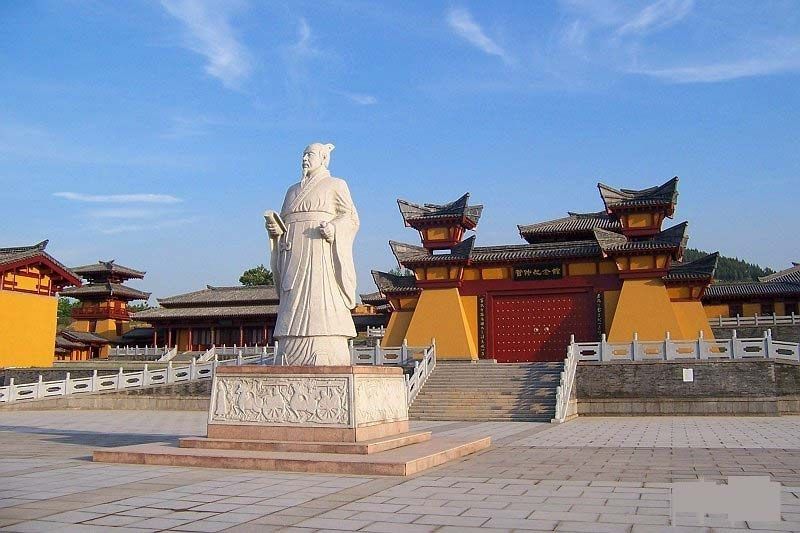Studies of Qi takes off with added resources, archeological finds

Guan Zhong (a famous politician in the Spring and Autumn Period) Memorial shows a lot of materials about Qi Culture.
Traditionally, Chinese scholarship has combined the study of culture from Qi and Lu (ancient Chinese states founded in 1046 BCE and 1043 BCE respectively) as Qi-Lu culture, or combined the study of Qi’s culture with that of Yan (founded the same year as Qi) as Yan-Qi culture. Since the 1980s though, as Chinese institutions have expanded research on regional culture with China, a framework for regarding and studying Qi as an independent cultural entity is emerging.
Separating the wheat from the chaff: Qi Culture stands out
In recent years, the discovery of ancient texts and archeological relics from Qi has prompted scholars to treat Qi culture as distinct and novel, inspiring a flourish of research from every angle. Xuan Zhaoqi, dean of the Qi Cultural Research Institute at Shandong University of Technology, affirmed the lightning growth of the fledgling area, commenting that as a comprehensive field, the study of Qi Culture has already accrued many accomplishments of which it can be proud, and its representative scholars have published a slew of papers and treatises. They have probed into the definition and the origins of the ancient state’s Culture, and explored the historical values of embodied therein, he added.
The field touches upon the archeological definition of “culture” for that historical time period, explained Qian Yihui, an associate professor of School of History at Capital Normal University. Studies also look at cultural exchanges among ancient states during Zhou Dynasty, and differences between Qi culture and the culture of Lu and Ju.
Xuan Zhaoqi elaborated on the excavation of cultural relics and antiques, noting that they have provided researchers with effective primary sources. For instance, inscribed bamboo slips containing the military strategy classic Sun Bin’s Art of War (not to be confused with The Art of War, by Sun Zu) were discovered in Yinque Hill Tomb in Linyi Prefecture, while in the old city of Qi, and an elaborate tomb of buried horses were found in Linzi (the capital city of the state of Qi).
Going forward: internal integral and external collaboration
We are not going to move the study of Qi culture forward by excluding it from the cultural pattern of the Zhou Dynasty as is done today, Qian Yihui asserted. Researchers pursuing various methodological avenues—studying the historical texts, studying the ancient script, researching the historical geography and conducting archeological research—are not in communication with each other, preventing the field from making the sort of progress that requires a nexus of people from different disciplines all thinking about the same thing, he explained. He advised that in addition to publishing an increasing volume, scholars connected to the study of Qi culture need to reorganize the existing body of literature in the field.
As it is currently carried out, research on Qi Culture mainly focuses on the politics, economy, culture and military of and the various schools of thought present and active in Qi. The institutions where Qi culture is studied, and the Wang Keqi, professor of College of History and Social Development at Shandong Normal University, said that the institutions where Qi culture is studied, or the individual scholars that research Qi, are scattered throughout Shangdong. In his view, studies examining the relationship between Qi culture and other cultures should be strengthened.
Echoing Qian Yihui, Xuan Zhaoqi said ”research on Qi Culture would benefit from integrating different disciplines as well as various resources from different research fields. By amplifying our integrative practices, we can build a collaborative relationship between various disciplines.” Equipped with wealth of resources in the social sciences and humanities, the study of Qi Culture should fully take advantage of this academic toolkit, further multidisciplinary approaches and pioneering new methods and modes of research. The application of new technologies such as geographic information systems will add new energy to the field.
The Chinese version appeared in Chinese Social Sciences Today, No. 439, Apr. 15, 2013
Translated by Zhang Mengying
